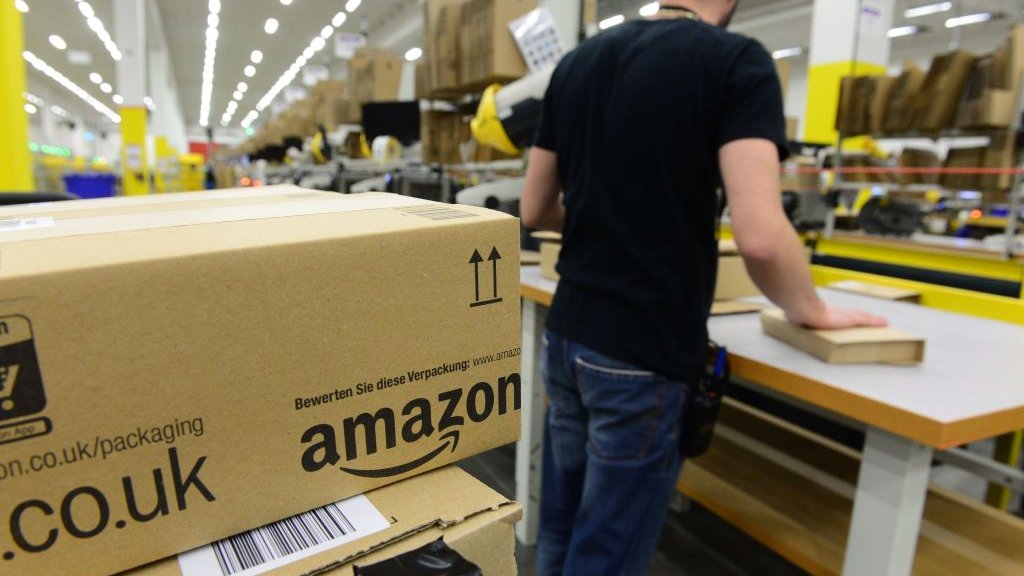Amazon UK tax payment falls to £1.7m

 Image copyright Getty Images
Image copyright Getty ImagesOnline retail giant Amazon paid far less tax in the UK last year, despite seeing a jump in profits.
Amazon Services UK paid tax of £1.7m, down from £7.4m in 2016, but operating profits rose to £80m from £48m.
One reason for the lower tax bill was a rise in share-based payments for staff. Its full tax bill was £4.6m, but it has deferred paying the remaining £2.9m.
An Amazon UK spokesman said it paid all the tax it was required to “in the UK and every country where we operate”.
“Corporation tax is based on profits, not revenues, and our profits have remained low given retail is a highly competitive, low-margin business and our continued heavy investment.”
Over the past five years, full-time staff in the fulfilment centres have received, on average, shares worth more than £1,000 a year, the spokesman said.
As Amazon’s share price has risen so sharply, these are often worth more when they are sold to the open stock market. That sale price is the one on which the tax bill, for both the company and the individual, is based.
- Amazon delivers record quarterly profit
- How Jeff Bezos took Amazon to the top
Amazon Services UK is the division that runs the fulfilment centres which process, package and post deliveries to UK customers.
It employs more than two-thirds of the 27,000-strong UK workforce. It does not include Amazon businesses engaged in cloud computing services, which provide remote data storage, and Amazon Marketplace.
Turnover for Amazon UK Services jumped from £1.43bn to nearly £1.98bn.
Analysis:
Dominic O’Connell, Today business presenter
While the numbers are big, this set of accounts gives only a glimpse of the true state of Amazon’s tax affairs. Amazon Services UK runs customer service and warehouses in the UK – actual retail sales are routed through a different company.
Turnover was just under £2bn, operating profits nearly tripled to just under £80m, but the company was able to reduce its tax liability by deducting part of the payments it makes to staff in the form of company shares. Any company can do this – it is not an Amazon-specific tactic. It then deferred some of the tax, and ended up paying just £1.7m.
This will be a bitter pill for High Street retailers, which are struggling to survive under an exodus of shoppers to online yet are unable to minimise their tax burden so easily. They also claim their physical location means they carry an extra burden of high business rates.
It is also a spur to the Treasury and HMRC, which has often talked tough on tax reform but has not been able to level the playing field between High Street and online players. The long-talked about shift away from corporation tax – which taxes company profits – to an activity tax, which would capture tax on sales wherever they are made – seems no closer.
Dominant role
Earlier this week, Amazon reported record quarterly profits of $2.53bn (£1.9bn) worldwide for the three months to 30 June.
The profit was about 12 times more than Jeff Bezos’s company made during the same period last year.
Amazon reports its revenues from UK sales through a separate company based in Luxembourg.
Rebecca McVittie, investment director at Fidelity International, told the BBC’s Today programme it was “indicative of how tax policy hasn’t moved on”.
“The world has evolved very quickly, technology giants have this hugely dominant role and popular role with consumers and in many respects, what we see in the headlines today, I think there should be more reflection on the need for digital taxation.”
Source: BBC




